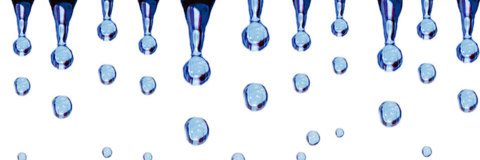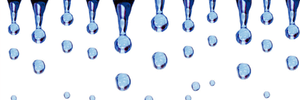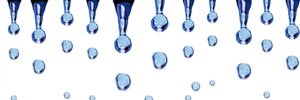Metabolism Studies
Breath hydrogen produced by ingestion of commercial hydrogen water
This study compared how and to what extent ingestion of hydrogen water and milk increase breath hydrogen in adults. Five subjects without specific diseases, ingested distilled or hydrogen water and milk as a reference material that could increase breath hydrogen. Their end-alveolar breath hydrogen was measured. Ingestion of hydrogen water rapidly increased breath hydrogen to the maximal level of approximately 40 ppm 10-15 min after ingestion and thereafter rapidly decreased to the baseline level, whereas ingestion of the same amount of distilled water did not change breath hydrogen (p < 0.001). Ingestion of hydrogen water increased both hydrogen peaks and the area under the curve (AUC) of breath hydrogen in a dose-dependent manner. Ingestion of milk showed a delayed and sustained increase of breath hydrogen in subjects with milk intolerance for up to 540 min. Ingestion of hydrogen water produced breath hydrogen at AUC levels of 2 to 9 ppm hour, whereas milk increased breath hydrogen to AUC levels of 164 ppm hour for 540 min after drinking. Hydrogen water caused a rapid increase in breath hydrogen in a dose-dependent manner; however, the rise in breath hydrogen was not sustained compared with milk.
Shimouchi A, Nose K, Yamaguchi M, Ishiguro H, Kondo T. Breath hydrogen produced by ingestion of commercial hydrogen water and milk. Biomark Insights. 2009 Feb 9;4:27-32.
Hydrogen-rich water decreases serum LDL-cholesterol levels and improves HDL function
Authors have found that hydrogen (dihydrogen; H2) has beneficial lipid-lowering effects in high-fat diet-fed Syrian golden hamsters. The objective of this study was to characterize the effects of H2-rich water (0.9-1.0 l/day) on the content, composition, and biological activities of serum lipoproteins on 20 patients with potential metabolic syndrome. Serum analysis showed that consumption of H2-rich water for 10 weeks resulted in decreased serum total-cholesterol (TC) and LDL-cholesterol (LDL-C) levels. Western blot analysis revealed a marked decrease of apolipoprotein (apo)B100 and apoE in serum. In addition, we found H2 significantly improved HDL functionality assessed in four independent ways, namely, i) protection against LDL oxidation, ii) inhibition of tumor necrosis factor (TNF)-α-induced monocyte adhesion to endothelial cells, iii) stimulation of cholesterol efflux from macrophage foam cells, and iv) protection of endothelial cells from TNF-α-induced apoptosis. Further, authors found consumption of H2-rich water resulted in an increase in antioxidant enzyme superoxide dismutase and a decrease in thiobarbituric acid-reactive substances in whole serum and LDL. In conclusion, supplementation with H2-rich water seems to decrease serum LDL-C and apoB levels, improve dyslipidemia-injured HDL functions, and reduce oxidative stress, and it may have a beneficial role in prevention of potential metabolic syndrome.
Song G, Li M, Sang H, Zhang L, Li X, Yao S, et al. Hydrogen-rich water decreases serum LDL-cholesterol levels and improves HDL function in patients with potential metabolic syndrome. J Lipid Res. 2013 Jul;54(7):1884-93.
Molecular hydrogen consumption in the human body during the inhalation of hydrogen gas
Inhaling or ingesting hydrogen (H2) gas improves oxidative stress-induced damage in animal models and humans. It has been previously reported that H2 was consumed throughout the human body after the ingestion of H2-rich water and that the H2 consumption rate (VH2) was 1.0 μmol/min/m(2) body surface area. To confirm this result, authors evaluated VH2 during the inhalation of low levels of H2 gas. After measuring the baseline levels of exhaled H2 during room air breathing via a one-way valve and a mouthpiece, the subject breathed low levels (160 ppm) of H2 gas mixed with purified artificial air. The H2 levels of their inspired and expired breath were measured by gas chromatography using a semiconductor sensor. VH2 was calculated using a ventilation equation derived from the inspired and expired concentrations of O2/CO2/H2, and the expired minute ventilation volume, which was measured with a respiromonitor. As a result, VH2 was found to be approximately 0.7 μmol/min/m(2)BSA, which was compatible with the findings authors obtained using H2-rich water. VH2 varied markedly when pretreatment fasting to reduce colonic fermentation was not employed, i.e., when the subject’s baseline breath hydrogen level was 10 ppm or greater. Reported H2 inhalation method might be useful for the noninvasive monitoring of hydroxyl radical production in the human body.
Shimouchi A, Nose K, Mizukami T, Che DC, Shirai M. Molecular hydrogen consumption in the human body during the inhalation of hydrogen gas. Adv Exp Med Biol. 2013;789:315-21.
Hydrogen-rich water improves lipid and glucose metabolism in patients with type 2 diabetes
Oxidative stress is recognized widely as being associated with various disorders including diabetes, hypertension, and atherosclerosis. It is well established that hydrogen has a reducing action. We therefore investigated the effects of hydrogen-rich water intake on lipid and glucose metabolism in patients with either type 2 diabetes mellitus (T2DM) or impaired glucose tolerance (IGT). We performed a randomized, double-blind, placebo-controlled, crossover study in 30 patients with T2DM controlled by diet and exercise therapy and 6 patients with IGT. The patients consumed either 900 mL/d of hydrogen-rich pure water or 900 mL of placebo pure water for 8 weeks, with a 12-week washout period. Several biomarkers of oxidative stress, insulin resistance, and glucose metabolism, assessed by an oral glucose tolerance test, were evaluated at baseline and at 8 weeks. Intake of hydrogen-rich water was associated with significant decreases in the levels of modified low-density lipoprotein (LDL) cholesterol (ie, modifications that increase the net negative charge of LDL), small dense LDL, and urinary 8-isoprostanes by 15.5% (P < .01), 5.7% (P < .05), and 6.6% (P < .05), respectively. Hydrogen-rich water intake was also associated with a trend of decreased serum concentrations of oxidized LDL and free fatty acids, and increased plasma levels of adiponectin and extracellular-superoxide dismutase. In 4 of 6 patients with IGT, intake of hydrogen-rich water normalized the oral glucose tolerance test. In conclusion, these results suggest that supplementation with hydrogen-rich water may have a beneficial role in prevention of T2DM and insulin resistance.
Kajiyama S, Hasegawa G, Asano M, Hosoda H, Fukui M, Nakamura N, et al. Supplementation of hydrogen-rich water improves lipid and glucose metabolism in patients with type 2 diabetes or impaired glucose tolerance. Nutr Res. 2008;28:137-43.
Effectiveness of hydrogen rich water in subjects with potential metabolic syndrome
Metabolic syndrome is characterized by cardiometabolic risk factors that include obesity, insulin resistance, hypertension and dyslipidemia. Oxidative stress is known to play a major role in the pathogenesis of metabolic syndrome. The objective of this study was to examine the effectiveness of hydrogen rich water (1.5-2 L/day) in an open label, 8-week study on 20 subjects with potential metabolic syndrome. Hydrogen rich water was produced, by placing a metallic magnesium stick into drinking water (hydrogen concentration; 0.55-0.65 mM), by the following chemical reaction; Mg + 2H(2)O –> Mg (OH)(2) + H(2). The consumption of hydrogen rich water for 8 weeks resulted in a 39% increase (p<0.05) in antioxidant enzyme superoxide dismutase (SOD) and a 43% decrease (p<0.05) in thiobarbituric acid reactive substances (TBARS) in urine. Further, subjects demonstrated an 8% increase in high density lipoprotein (HDL)-cholesterol and a 13% decrease in total cholesterol/HDL-cholesterol from baseline to week 4. There was no change in fasting glucose levels during the 8 week study. In conclusion, drinking hydrogen rich water represents a potentially novel therapeutic and preventive strategy for metabolic syndrome. The portable magnesium stick was a safe, easy and effective method of delivering hydrogen rich water for daily consumption by participants in the study.
Nakao A, Toyoda Y, Sharma P, Evans M, Guthrie N. Effectiveness of hydrogen rich water on antioxidant status of subjects with potential metabolic syndrome-an open label pilot study. J Clin Biochem Nutr. 2010;46:140-9.



